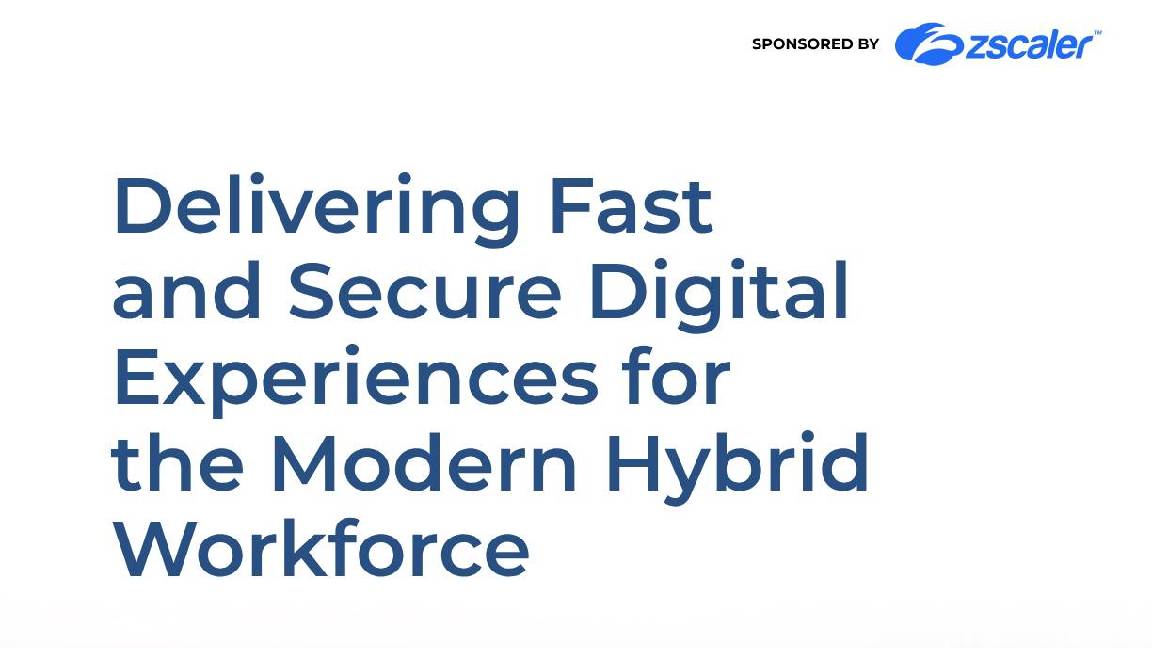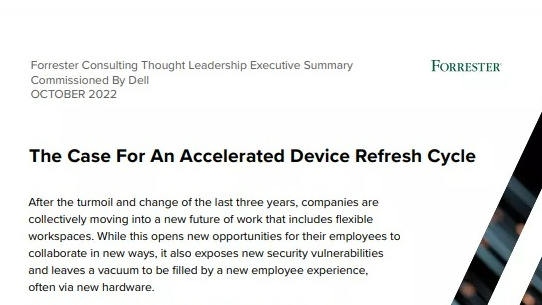How to deal with generational differences in the workplace
As businesses gear up for Industry 4.0, age is quickly becoming the main factor in workplace conflict


Sign up today and you will receive a free copy of our Future Focus 2025 report - the leading guidance on AI, cybersecurity and other IT challenges as per 700+ senior executives
You are now subscribed
Your newsletter sign-up was successful
Managers are aware of generational differences across their workforce now more than ever before. This is according to a recent Deloitte Insights report, which highlighted that executives are particularly aware of a disparity between their own views and those of their millennial employees.
In today's workplace, a team can be made up of people from up to five generations. Working together every day, it can quickly become clear how their attitudes, values and working styles differ.
"Execs have grown up with a certain set of norms and expectations in organisations, but given the diverse nature of the workforce those expectations are unlikely to be the same for all," says Richard Coombes, Deloitte UK leader of HR transformation.
"While Millennials hold high expectations for corporate responsibility and an increasing sensitivity to issues such as income, inequality and the environment, Baby Boomers place higher importance on personal goals," he notes.
Frustration over technology
Such differences can lead to conflict in the workplace. According to a white paper by recruitment company Robert Walters, Millennials perceive technology to be at the root of the majority workplace conflicts.
Around 34% of those surveyed in the report said that conflict was mainly caused by older workers not understanding new technology, followed closely by younger workers becoming frustrated at using outdated technology (33%).
For Gen X and the Baby Boomers, however, a more significant cause was young workers demanding rapid career progression (34% and 24% respectively). Everyone agreed though, that different expectations of workplace culture also played a significant factor in intergenerational workplace conflict.
Sign up today and you will receive a free copy of our Future Focus 2025 report - the leading guidance on AI, cybersecurity and other IT challenges as per 700+ senior executives
Hazel Leighfield, head of solutions at Sopra Steria Recruitment, puts the growing differences between the generations down to the speed of change in IT and digital disruption. However, she believes that it's the Millennials and the emerging Gen Z that are better equipped to adapt to today's workplace challenges given their early exposure to a rapidly changing environment.
"They have grown up in the digital world and are arguably more resilient to change - indeed some thrive on it," she says. "For senior executives with wider experience in the tech field, this can create a sense of disparity between themselves and the younger workforce.
"Given the rapid pace of IT innovation, many managers will often face young employees challenging existing procedures. For managers with extensive experience in tech and perhaps the company itself, this can often create a level of tension.
She added that employees can become "disengaged" from their organisation if this conflict leads to a rejection of new ideas and suggestions, something that companies can't risk given the demand for talent elsewhere.
Dealing with the skills gap
But further challenges lie ahead, particularly around skills, as the growth of Industry 4.0 technologies such as robotics, AI and IoT change the way we work.
Over half (55%) of the executives surveyed by Deloitte said their top talent challenge derives from a significant mismatch between current skill sets and those needed in the future. Business leaders believe that the education system is not providing their young staff with the skills required for an Industry 4.0 workplace and few young workers feel prepared for the impact it will have on them.
However, there is disagreement around what the most important skills are. Two-thirds of executives favour strong technical capabilities over soft skills, yet in a separate survey, Millennials suggested ethics and integrity, critical thinking, confidence and motivation and interpersonal skills will be of higher importance as jobs evolve.
And what of talent development - who's responsible for ensuring employees get the skills they need going forward? Unsurprisingly, Deloitte Insight's report showed that executives believe responsibility should fall on the individual, while eight out of 10 respondents said that on-the-job training, continuous professional development and employer-led training would help them perform best.
But whoever takes responsibility for this development, the current and future workforce need to adopt a love of learning and the competence to reskill regularly, "as less technical skills need to be updated every five years and more technical skills, such as coding, face a short 18-month lifespan," says Coombes. "The concept of a single career with a fixed knowledge base and skill set is diminishing. Workers need to continue to learn and apply their skills in different ways," he adds.
Getting the best from your employees
Some key questions around the skills needed for Industry 4.0, and who's responsible for developing them, still need to be answered. However, there are many things managers can already do to get the best out of their workforce, whatever their age.
The key to this is taking the time to understand different motivations and career aspirations to ensure every group's needs are met. While there's no one-size-fits-all solution, creating an environment where employees feel valued regardless of their generational bracket promotes a more blended team where respect and individual value is better recognised.
It's also important to break down generational stereotypes in the business, which can be done by bringing people together in different ways explains Barry Stanton, head of employment at law firm Boyes Turner.
"Strategies that work well are mentoring or buddy schemes both age up and age down, making each appreciate that not only does the other person have valuable skills and insights but that we can learn from our colleagues whatever their age.
"Having inter-generational sub-teams working on aspects of a project is also proving a great way to harmonise and bring different ages and skill sets together."
Management training will also factor heavily into any strategy, according to Emma O'Connor, senior associate at Boyes Turner. "Some managers are having to manage five different generations of people in their team each with their competing needs. That's five different groups who will each have, however subtly, different expectations of a manager and how they want to be managed.
"Ensure you're aware of the different management styles you may need to employ to manage a team is a key strategy and investment for organisations keen to retain staff."
Keri Allan is a freelancer with 20 years of experience writing about technology and has written for publications including the Guardian, the Sunday Times, CIO, E&T and Arabian Computer News. She specialises in areas including the cloud, IoT, AI, machine learning and digital transformation.
-
 ITPro Best of Show NAB 2026 awards now open for entries
ITPro Best of Show NAB 2026 awards now open for entriesThe awards are a fantastic opportunity for companies to stand out at one of the industry's most attended shows
-
 Mistral CEO Arthur Mensch thinks 50% of SaaS solutions could be supplanted by AI
Mistral CEO Arthur Mensch thinks 50% of SaaS solutions could be supplanted by AINews Mensch’s comments come amidst rising concerns about the impact of AI on traditional software
-
 'Digital hide-and-seek': Workers are wasting hundreds of hours a year sourcing the information they need to carry out their role
'Digital hide-and-seek': Workers are wasting hundreds of hours a year sourcing the information they need to carry out their roleNews Knowledge workers globally are wasting a quarter of their working week tracking down information, new research from Atlassian has revealed.
-
 Untethered: How CIOs and CISOs are paving the way for the new hybrid workforce
Untethered: How CIOs and CISOs are paving the way for the new hybrid workforceWhitepaper Effective techniques to transition from exposed legacy infrastructure to an effective zero trust strategy
-
 Unlocking the power of your digital services
Unlocking the power of your digital servicesSponsored Businesses have invested significant cash into technology since COVID-19, but are they really getting their money's worth?
-
 Delivering fast and secure digital experiences for the modern hybrid workforce
Delivering fast and secure digital experiences for the modern hybrid workforceWhitepaper A new approach to digital experience monitoring that can monitor the health of all systems
-
 Collaboration is the glue that holds your business together
Collaboration is the glue that holds your business togetherSPONSORED A combination of productivity tools and cloud telephony can enable the best from your workforce
-
 The future of work and the forgotten workforce
The future of work and the forgotten workforcewhitepaper How to deploy a mobile-first strategy so no one gets left behind
-
 The case for an accelerated device refresh cycle
The case for an accelerated device refresh cycleWhitepaper Achieving a more cost-effective device lifecycle overall
-
 Employees are choosing how they work
Employees are choosing how they workWhitepaper And with the right secure digital strategy, this could be a great thing for your business: today and far into the future
